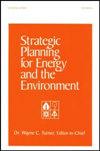基于深度学习的并联混合动力汽车智能能源治理研究
Q3 Environmental Science
Strategic Planning for Energy and the Environment
Pub Date : 2022-04-04
DOI:10.13052/spee1048-5236.4124
引用次数: 0
摘要
为实现混合动力汽车的智能能量治理,针对并联混合动力汽车的能量损失问题,将深度学习与强化学习相结合,提出了一种基于并联混合动力汽车模型构建的deep - q - network能量控制器,并通过ADVISOR软件平台对其进行了仿真,并与传统模糊逻辑策略进行了比较。实验结果表明,本文提出的基于dqn的控制策略降低了并联混合动力汽车的能耗和废气排放。与传统模糊控制策略相比,油耗降低0.43L,燃油经济性提高10.9%。CO44、CO、NOxx等废气排放量分别减少28.9%、0.2%和7.4%。验证了所提方法的可行性和有效性。本文章由计算机程序翻译,如有差异,请以英文原文为准。
Research on the Intelligent Energy Governance of Parallel Hybrid Vehicle Based on Deep Learning
To realize the intelligent energy governance of hybrid vehicles, a Deep-Q-Network energy controller based on the construction of parallel hybrid vehicle model is proposed, which aiming at energy loss problem of parallel hybrid vehicles and combining deep learning with reinforcement learning, and it is simulated through the ADVISOR software platform and compared with the traditional fuzzy logic strategy. The experimental results indicate that the DQN-based control strategy proposed in this paper reduces both the energy consumption and exhaust emissions of parallel hybrid vehicles. Compared with the traditional fuzzy control strategy, fuel consumption is reduced by 0.43L while the fuel economy increases by 10.9%. and exhaust gas such as CO44, CO, NOxx the emission were reduced by 28.9%, 0.2%, and 7.4%, respectively. It shows the feasibility and effectiveness of the proposed methods.
求助全文
通过发布文献求助,成功后即可免费获取论文全文。
去求助
来源期刊

Strategic Planning for Energy and the Environment
Environmental Science-Environmental Science (all)
CiteScore
1.50
自引率
0.00%
发文量
25
 求助内容:
求助内容: 应助结果提醒方式:
应助结果提醒方式:


